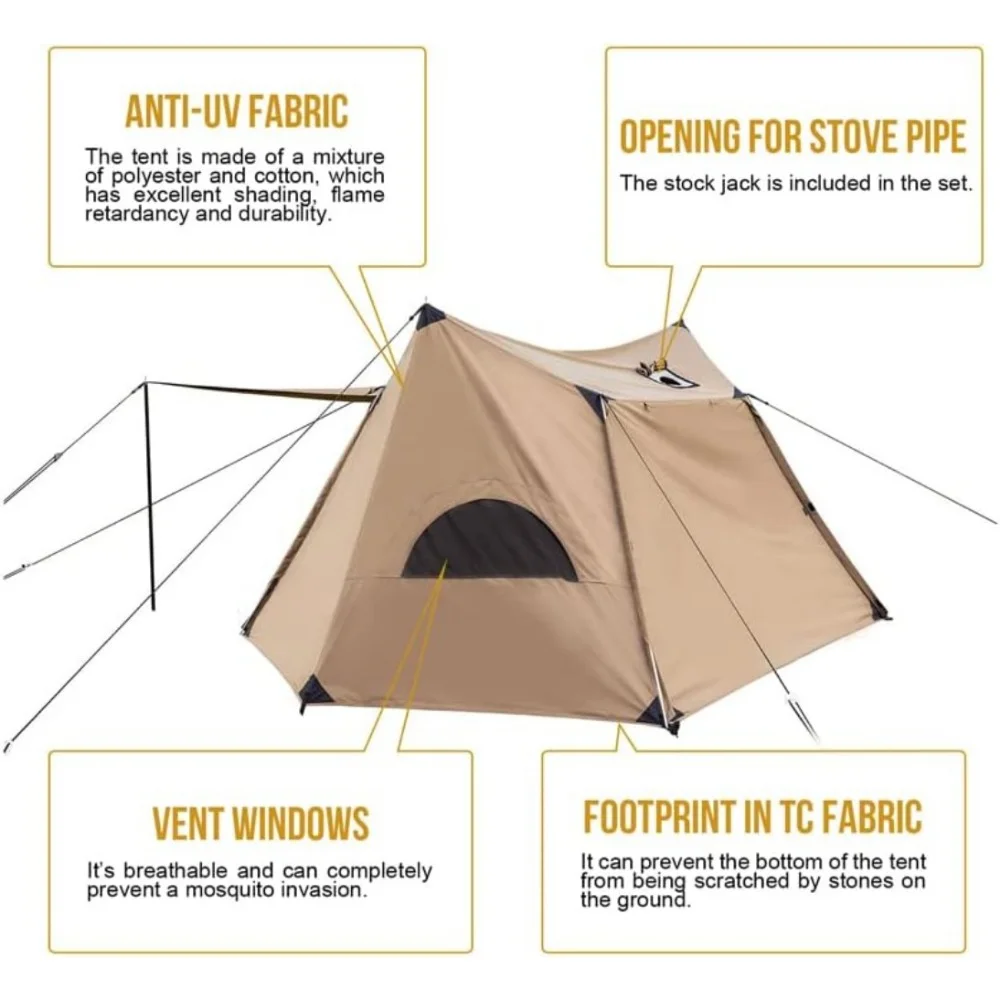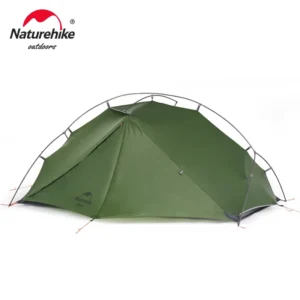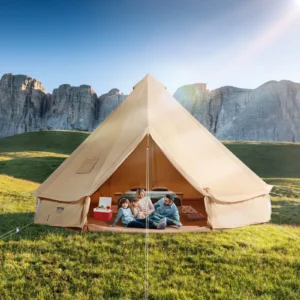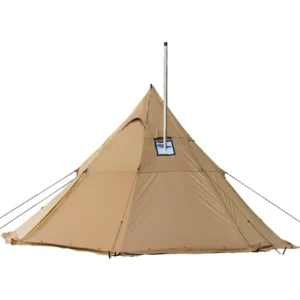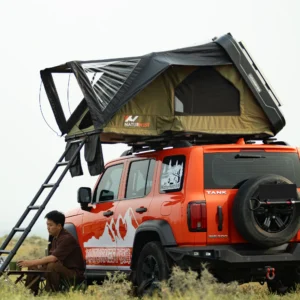Introduction: The Enduring Legacy of Canvas in the Wilderness
When you venture into the backcountry for extended periods, facing unpredictable weather and challenging terrain, your shelter becomes more than just a place to sleep—it becomes your home. Rugged camping—those multi-day or multi-week adventures in remote locations, harsh weather conditions, and demanding environments—requires gear that won’t just survive but thrive under pressure.
Canvas tents have stood the test of time for good reason. Long before lightweight synthetic materials entered the outdoor scene, adventurers, explorers, and wilderness professionals relied on the robust protection of canvas. Despite the emergence of newer, lighter alternatives, canvas shelters continue to be the go-to choice for those who prioritize reliability in the most demanding situations.
But why does canvas remain relevant—and often superior—in today’s high-tech outdoor marketplace? The answer lies in its exceptional combination of durability, weather resistance, and comfort that canvas shelters for rugged camping provide. While the initial investment might be higher than synthetic alternatives, the decades of service a quality canvas tent offers makes it one of the wisest long-term purchases an outdoor enthusiast can make.
The Unmatched Durability of Canvas: Built to Last Decades
The Science of Canvas Strength
Canvas isn’t just another tent material—it’s a fortress fabric. The tightly woven fibers create a dense barrier that naturally resists punctures and tears. Unlike the thin synthetic materials that can rip with a single snag, canvas has inherent structural integrity that stands up to the abuse of rugged environments.
The natural cotton fibers in traditional canvas (or the enhanced poly-cotton blends in modern versions) provide exceptional tensile strength. While a typical nylon tent fabric might have a tensile strength of 30-40 pounds per inch, quality canvas can withstand forces exceeding 100 pounds per inch—making it significantly more resistant to damages from fallen branches, sharp rocks, or accidental mishandling during setup.
Enduring the Elements Year After Year
Canvas tents routinely outlast their synthetic counterparts by decades. While the average synthetic tent might show significant wear after 5-7 seasons of heavy use, properly maintained canvas shelters can remain in service for 20+ years. This remarkable longevity stems from the material’s natural resistance to the elements that typically degrade outdoor gear: UV radiation, repeated tension, and environmental stress.
Modern canvas shelter durability in rough weather has been further enhanced with treatments and construction techniques that preserve the material’s inherent strengths while addressing traditional weaknesses. Poly-cotton blends, for example, combine the breathability and feel of cotton with added strength and mold resistance from synthetic fibers.
Superior Weather Protection in Extreme Conditions
One of the most compelling reasons experienced outdoors people choose canvas is its exceptional performance across all weather conditions. Canvas doesn’t just resist the elements—it actively works with them to create a more protective shelter.
Natural Water Resistance That Improves Over Time
When canvas gets wet, something remarkable happens: the cotton fibers swell, creating an even tighter weave that actually improves water resistance. This natural phenomenon, known as “seasoning,” makes canvas tents increasingly waterproof with use. New canvas tents typically require an initial seasoning process—a controlled first exposure to water that allows the fibers to swell and tighten.
Canvas performance in different precipitation scenarios:
- Sustained Heavy Rainfall: Canvas maintains integrity without the sagging and moisture penetration common in synthetic tents
- Driving Rain: The dense weave prevents water from being forced through the fabric
- Snow Load: Canvas supports significant snow accumulation without collapsing
- Morning Dew: Surface moisture beads rather than saturating the material
Wind Resistance That Lets You Sleep Through Storms
The substantial weight of canvas provides remarkable stability in high winds. While lightweight tents flap violently and create noise that makes sleep impossible, insulated canvas shelters for cold weather camping remain relatively quiet and stable. The natural density dampens the effects of gusting wind, allowing for a peaceful night’s rest even during turbulent conditions.
Superior UV Protection
Long-term exposure to ultraviolet radiation breaks down the polymers in synthetic tent fabrics, causing them to become brittle and vulnerable to tears. Canvas naturally reflects more UV radiation and degrades much more slowly under sun exposure, making it ideal for extended trips or base camp situations where your tent might be set up for weeks at a time.
For campers seeking reliable protection in all conditions, our carefully tested canvas camping tent collection offers options for various environments and group sizes.
Breathability and Condensation Control: A Drier Living Space
Anyone who has spent a night in a synthetic tent knows the unpleasant experience of waking up to interior “rain”—condensation dripping from the ceiling onto sleeping bags, gear, and faces. This moisture buildup isn’t just uncomfortable; it can damage equipment and create unhealthy living conditions on longer trips.
Canvas solves this problem through its natural breathability. The tightly woven natural fibers create millions of microscopic pathways that allow water vapor to escape while still blocking liquid water from entering. This moisture vapor transfer is perhaps the most underappreciated advantage when comparing canvas vs nylon tents in wilderness settings.
The practical benefits of this breathability include:
- Dramatically reduced interior condensation, even with multiple people sleeping inside
- Maintenance of healthy humidity levels that prevent mildew on gear
- Prevention of that clammy, damp feeling common in synthetic tents
- Elimination of the “morning shower” effect when touching tent walls
- Better air quality for extended stays
On multi-day or multi-week expeditions, this breathability becomes increasingly valuable. Gear stays drier, sleeping bags maintain their loft, and the overall living experience remains comfortable rather than damp and musty.
Natural Temperature Regulation Across Seasons
Canvas provides remarkable insulation properties that synthetic materials simply cannot match. The dense, natural fibers create a barrier that moderates temperature extremes, keeping the interior environment more stable regardless of outside conditions.
In summer heat, canvas reflects significantly more solar radiation than thin synthetic materials. Tests have shown that canvas tents can maintain internal temperatures 10-15°F cooler than comparable synthetic tents during peak afternoon heat. This difference isn’t just about comfort—it can be essential for safe camping in hot environments.
During colder conditions, canvas retains interior warmth more effectively. The insulating properties of the thicker material prevent the rapid heat loss common in thin synthetic tents. Early morning temperatures inside a canvas tent typically register 5-8°F warmer than in synthetic alternatives with the same occupancy.
Perhaps most importantly, canvas maintains more stable temperatures throughout the day-night cycle. Rather than experiencing the wild temperature swings common in synthetic tents (sweltering by day, freezing by night), canvas creates a more consistently comfortable living space.
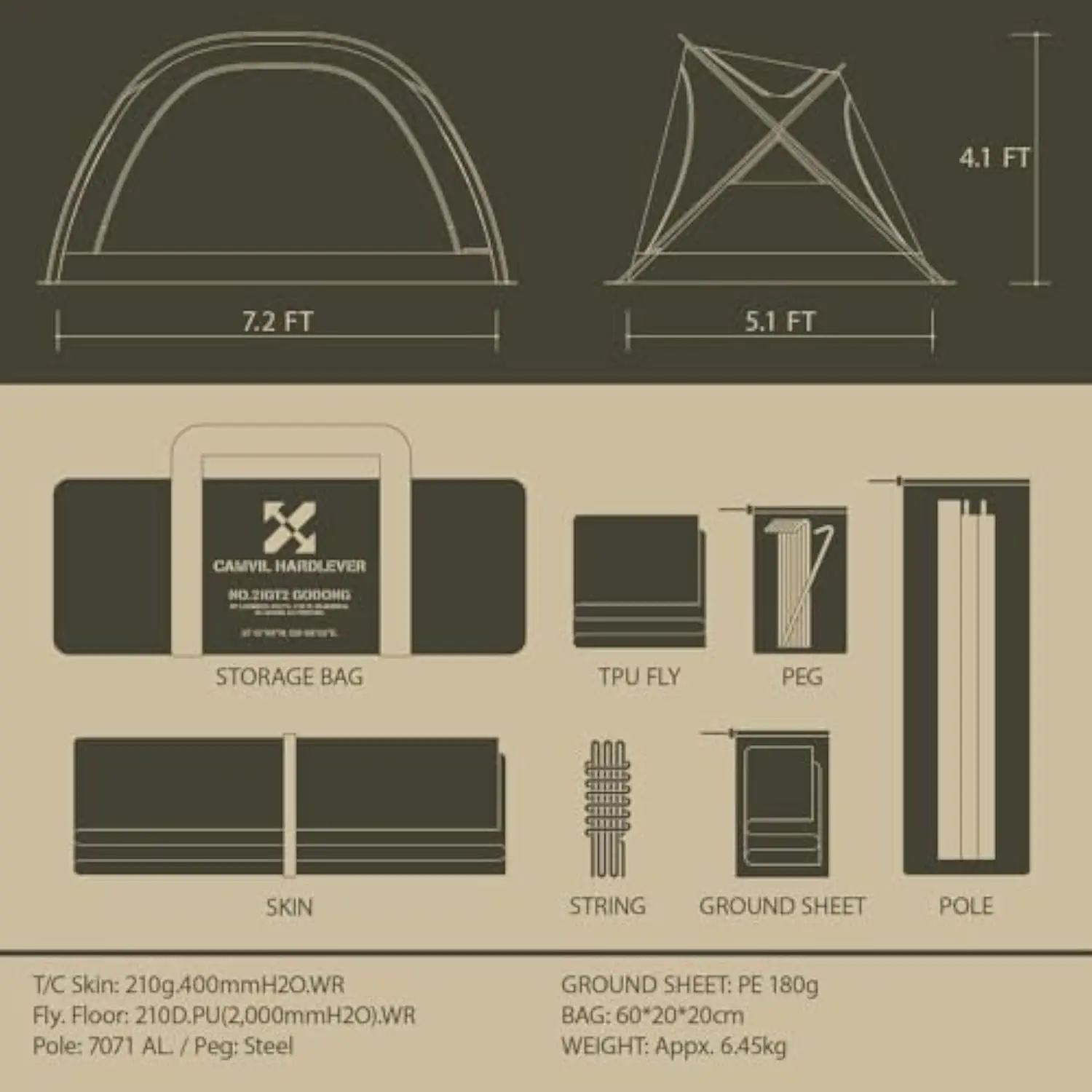
The Hot Tent Advantage: Embracing Wood Stoves
One unique capability of canvas tents that synthetic shelters cannot safely match is compatibility with wood-burning stoves. This “hot tent” approach transforms cold-weather camping from an exercise in endurance to a comfortable, even luxurious experience.
The ability to safely install a proper wood stove with an appropriate chimney through a fire-resistant stove jack provides numerous advantages:
- Internal temperatures that can reach 70-80°F even when outside temperatures drop well below freezing
- A means to dry wet clothing and gear after challenging weather
- The ability to cook meals inside during inclement conditions
- Extended comfortable living in winter environments that would otherwise be inhospitable
While stove installation requires proper precautions and safety measures, the canvas material itself offers inherent fire resistance superior to synthetic fabrics. Many serious winter campers find that our specialized winter camping tent options with stove compatibility completely transform their cold-weather outdoor experiences.
Practical Advantages for Serious Adventurers
Beyond the core benefits of durability, weather protection, and comfort, canvas tents offer numerous practical advantages that become increasingly apparent with experience:
- Field Repairability: Small tears or punctures in canvas can be easily repaired with basic sewing skills and simple patches
- Sound Dampening: The density of canvas significantly reduces external noise, from rain patter to wind gusts to campground sounds
- Maximized Interior Space: Many canvas tents feature more vertical walls, creating usable space throughout the shelter rather than just in the center
- Natural Feel: The organic material creates a more natural aesthetic and tactile experience compared to the plastic feel of synthetics
- Improved Air Quality: Reduced chemical off-gassing compared to many synthetic tents, particularly important for those with sensitivities
- Light Diffusion: Canvas creates a warm, pleasant interior light quality rather than the harsh glare common in thin synthetic tents
These qualities make long-term canvas tent living substantially more pleasant, especially for extended trips or base camp situations where you’ll be spending significant time in your shelter.
Canvas vs. Synthetic Fabrics: The Full Comparison
To truly understand why canvas excels for rugged camping, it’s helpful to directly compare key performance factors:
| Performance Factor | Canvas | Synthetic |
|---|---|---|
| Durability | Exceptional (20+ years with proper care) | Moderate (5-7 years typical) |
| Weather Resistance | Excellent across all conditions | Variable (good in some, poor in others) |
| Breathability | Natural moisture vapor transfer | Poor to moderate (condensation common) |
| Temperature Regulation | Excellent insulation properties | Poor (transfers external temperatures quickly) |
| Weight | Heavy (10-30 lbs for typical tent) | Light (2-8 lbs for comparable size) |
| Pack Size | Bulky | Compact |
| Drying Time | Slow (hours to days) | Quick (minutes to hours) |
| Maintenance | Moderate (requires proper drying) | Low (quick drying, less care) |
| Stove Compatibility | Excellent with proper setup | Generally incompatible/unsafe |
| Initial Cost | High | Low to moderate |
| Long-term Value | Excellent (cost per year very low) | Moderate (requires replacement sooner) |
This comparison highlights why canvas remains the preferred option for scenarios where durability, comfort, and protection take precedence over weight and packability concerns. For travelers facing variable conditions, our multi-season tents for variable climates provide adaptable protection across changing environments.
Heavy Duty 4 Season Tent, Mountaineering Tent, Winter Camping Tent
$870.40 Select options This product has multiple variants. The options may be chosen on the product pageUltralight Backpacking Tent, Ultralight Dome Tent, Winter Camping Tent
Price range: $369.63 through $370.07 Select options This product has multiple variants. The options may be chosen on the product pageHeavy Duty 4 Season Tent, Ultralight Freestanding Tent, Winter Camping Tent
$3,722.66 Select options This product has multiple variants. The options may be chosen on the product page- $1,221.93 Select options This product has multiple variants. The options may be chosen on the product page
Heavy Duty 4 Season Tent, Winter Camping Tent
$638.69 Select options This product has multiple variants. The options may be chosen on the product pageHeavy Duty 4 Season Tent, Winter Camping Tent
$5,109.59 Select options This product has multiple variants. The options may be chosen on the product page
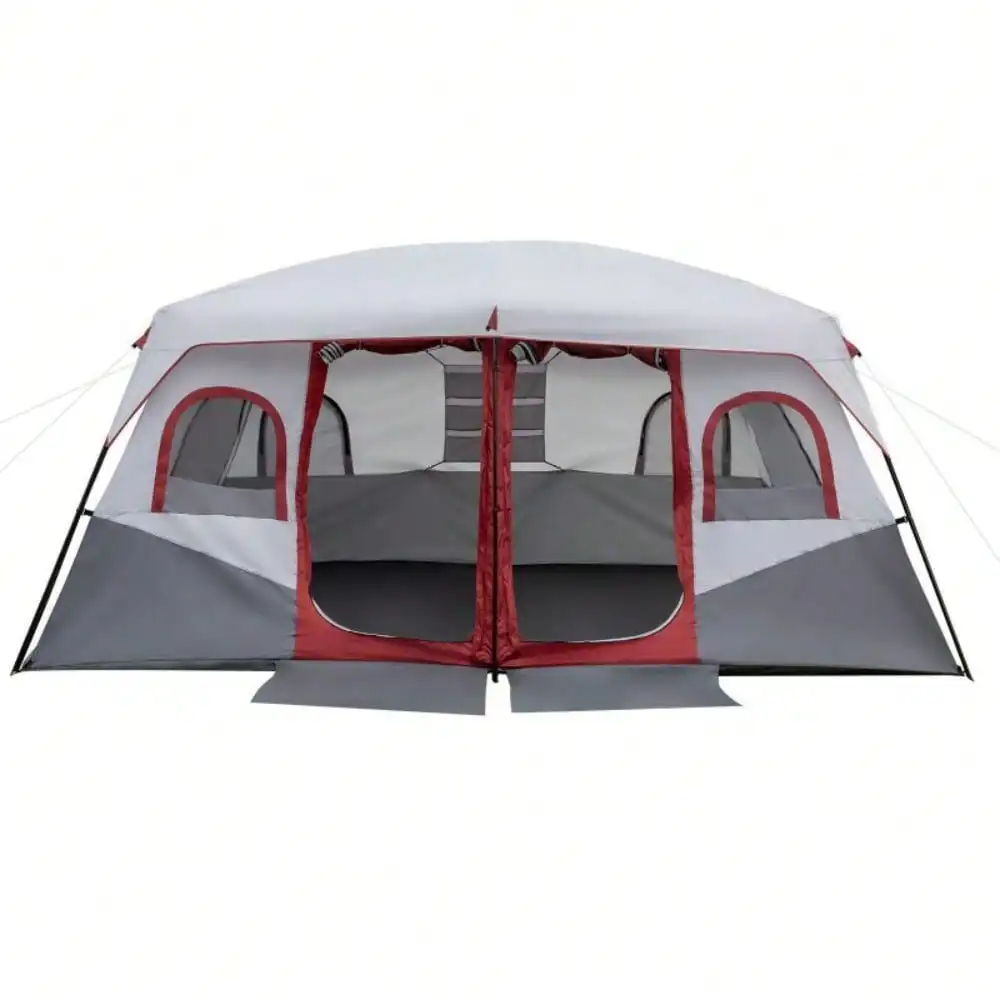
Weighing the Trade-offs: When Canvas Might Not Be Ideal
Canvas tents aren’t the perfect solution for every camping scenario, and honestly acknowledging their limitations helps determine if they’re right for your specific needs.
The most obvious drawback is weight. Canvas tents typically weigh 3-5 times more than their synthetic counterparts—a 4-person canvas tent might weigh 25-35 pounds compared to 5-8 pounds for a synthetic alternative. This weight difference makes canvas impractical for backpacking or any situation where you’re carrying gear over long distances.
Canvas also requires more space for transport and storage. While synthetic tents pack down to the size of a water bottle in some cases, canvas tents remain bulky even when properly folded, requiring significant vehicle space.
After rainstorms, canvas requires thorough drying before storage to prevent mildew and rot. This drying process can take substantially longer than with synthetic materials—sometimes days rather than hours—making it problematic for trips with frequent location changes in wet conditions.
For those seeking durable alternatives with less weight, our four-season tents built for durability offer resilient options with more manageable carrying weights.
Who Benefits Most from Canvas Tents?
While not ideal for every camping style, canvas tents excel for specific users and scenarios:
Vehicle-Based Campers and Overlanders: When transportation to your campsite happens on wheels rather than on foot, the weight disadvantage becomes irrelevant, allowing these campers to enjoy all the benefits without the primary drawback.
Base Camp Expeditions: For situations where you establish a central camp for extended periods while exploring from that fixed location, canvas provides unmatched comfort and protection.
Hunters and Anglers: These users often need weather-resistant, quiet shelters that can accommodate stoves for fall and winter outings when temperatures drop but game and fishing seasons remain open.
Winter Camping Enthusiasts: The insulation properties and stove compatibility make canvas the superior choice for comfortable cold-weather adventures.
Families and Groups: The durability withstands the increased wear and tear that comes with multiple users, while the spacious designs and superior climate control keep everyone comfortable.
Long-Term Value Seekers: Those willing to make a higher initial investment in exchange for decades of service find canvas tents to be the most economical choice over time.
For these users, our heavy-duty 4-season tent collection offers options specifically designed for the most demanding conditions.
Essential Care for Your Canvas Investment
To ensure your canvas tent delivers decades of reliable service, proper maintenance is essential:
Complete Drying: Never pack or store canvas with any moisture present. Set up the tent in a dry, sunny location after use until absolutely no dampness remains—even if this takes multiple days.
Appropriate Cleaning: Remove dirt promptly using soft brushes. For stubborn stains, use mild soap and cold water, gently scrubbing and thoroughly rinsing. Avoid harsh chemicals that can damage waterproofing treatments.
Mildew Prevention: Store only when completely dry in a cool, dry place with good air circulation. Consider using a dehumidifier in storage areas with high humidity.
Regular Inspection: Check seams, guy points, and high-stress areas for early signs of wear. Minor repairs addressed promptly prevent larger failures in the field.
Retreatment Schedule: Follow manufacturer recommendations for reapplying water-resistant treatments, typically every 1-3 seasons depending on use frequency and conditions.
For comprehensive guidance on maximizing your tent’s lifespan, our canvas tent care guide provides detailed maintenance instructions for all seasons and conditions, while our 4-season winter 2-person tents collection offers durable options for couples and solo campers.
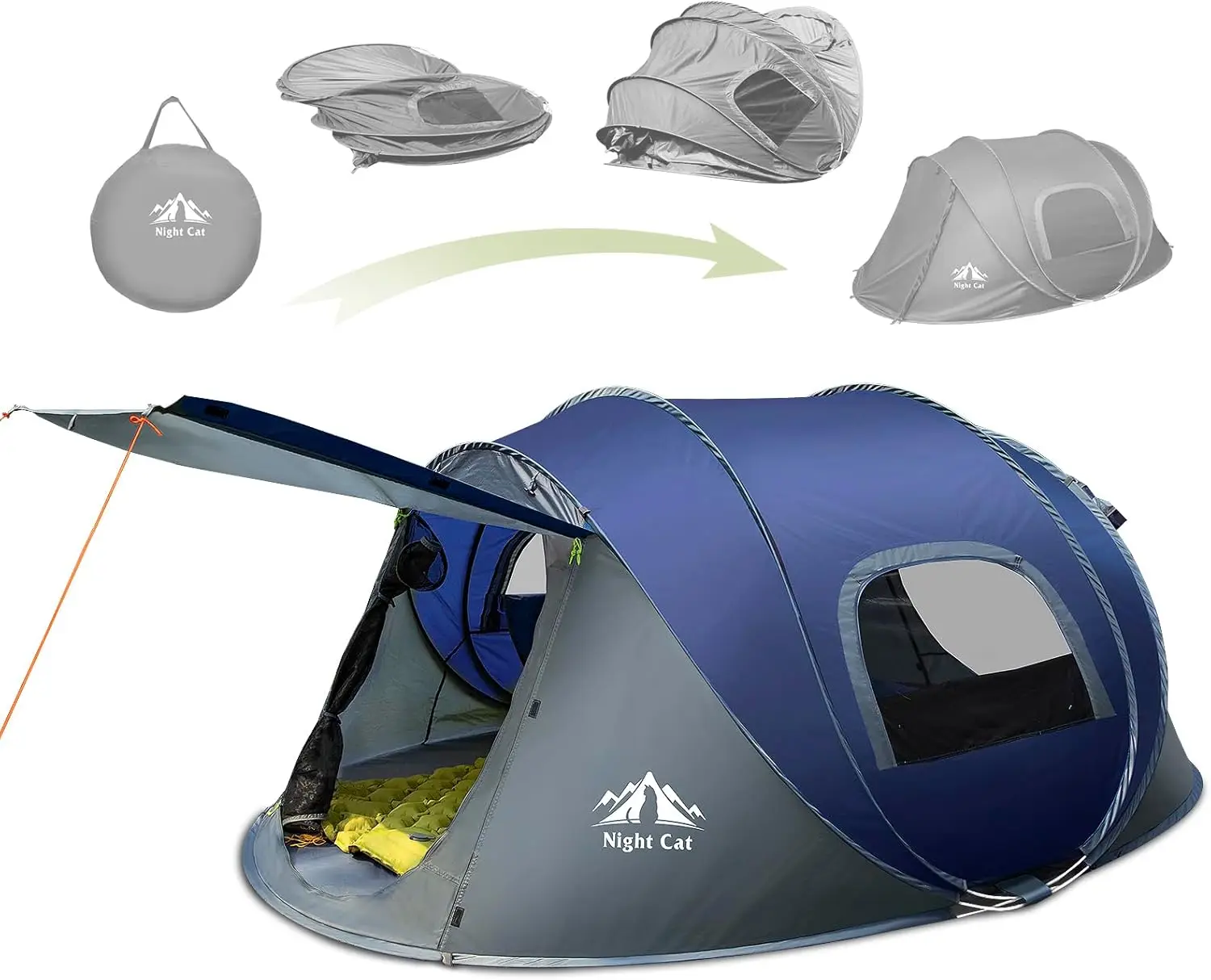
Conclusion: Why Canvas Remains the Choice of Experienced Outdoors People
In the world of outdoor shelters, few materials have proven their worth as thoroughly as canvas. Its exceptional durability, superior weather protection, natural temperature regulation, and breathability create a shelter that doesn’t just protect you from the elements—it provides a comfortable home in the wilderness.
While synthetic tents may win the competition for lightweight backpacking, canvas dominates where it matters most for rugged camping: reliability under pressure, comfort during extended stays, and longevity that turns an initial investment into decades of adventure.
For those who venture into demanding environments and require shelter they can trust implicitly, a quality canvas tent represents not just a purchase but a partnership—a reliable companion for countless wilderness experiences across decades of outdoor adventure. Before making your decision, explore our definitive guide to heavy-duty canvas shelters to find the perfect option for your specific outdoor needs.

